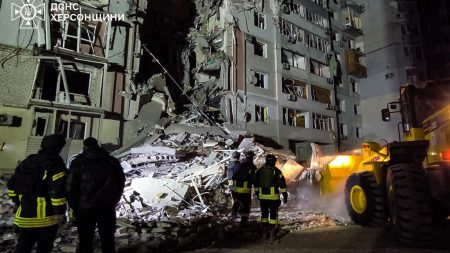The Tragic Return of Shiri Bibas: A Family’s Agony and the Broader Conflict
The tragic story of Shiri Bibas, a 32-year-old Israeli hostage, has shaken the nation and drawn international attention. On Friday, October 13, 2023, the remains of Shiri Bibas were returned to Israel from the war-torn Gaza Strip. However, the process was marred by a chilling revelation: Hamas, the militant group governing Gaza, had initially sent the wrong body. The Bibas family was left reeling as they confirmed the devastating news that Shiri had been murdered in captivity. This heartbreaking development underscores the brutal realities of the conflict and the unimaginable suffering it inflicts on innocent civilians.
A Family’s Worst Nightmare: The Bibas Family Speaks Out
The Bibas family had been enduring an unimaginable ordeal since October 7, 2023, when Shiri, her husband Yarden, and their two young children, Ariel (4) and Kfir (9 months), were abducted from their home in southern Israel during a Hamas-led terror attack. While Yarden was freed earlier this month, the fate of Shiri and her children remained uncertain. On Thursday, October 12, 2023, Hamas handed over the remains of four individuals it claimed were deceased Israeli hostages: Shiri, Ariel, Kfir, and 84-year-old Oded Lifshitz. However, forensic analysis by Israeli authorities revealed a shocking discrepancy. Three of the bodies were identified as Oded Lifshitz and the Bibas children, but the fourth did not match Shiri or any other known hostage.
A Brutal Act of Terror: The Circumstances of Shiri’s Death
The forensic analysis conducted by the Institute of Forensic Medicine revealed the horrifying truth: Ariel and Kfir had been brutally murdered by their captors no later than November 2023. The Israel Defense Forces (IDF) released a statement detailing the atrocities, stating that the two young boys were not shot but killed with "their bare hands." The terrorists then attempted to cover up their crimes, further compounding the anguish for the Bibas family. Shiri’s body was later returned, but the fact that Hamas initially sent the wrong remains adds another layer of cruelty to this already devastating story. The Bibas family, who had been holding onto hope for months, was forced to confront the unbearable reality of their loss.
Hamas and Militant Groups: Denials and Responsibility
Amid the tragedy, Hamas and other militant groups in Gaza have denied any responsibility for the deaths of Shiri and her children. Hamas claims that the family died in an Israeli airstrike, a narrative that has been categorically rejected by Israeli authorities. The Palestinian Mujahedeen Brigades, a small militant group believed to have held Shiri and her children, claimed to have handed over Shiri’s remains to the International Committee of the Red Cross (ICRC). However, the ICRC only confirmed that its team had received human remains and transferred them to Israeli authorities without providing further details. The conflicting accounts and outright denials by Hamas and its affiliates have only deepened the pain and outrage felt by the Bibas family and the broader Israeli public.
The Role of the International Community: A Call for Accountability
The involvement of the International Committee of the Red Cross (ICRC) in facilitating the return of Shiri’s remains highlights the critical role of humanitarian organizations in conflict zones. However, the broader international community has been criticized for its response to the ongoing violence in Gaza. While some have called for an independent investigation into the circumstances of Shiri’s death and the murders of her children, others have been accused of turning a blind eye to the atrocities committed by Hamas. The Bibas family’s story serves as a stark reminder of the human cost of the Israeli-Palestinian conflict and the urgent need for accountability.
A Promise of Revenge: The Political Fallout and Its Implications
The return of Shiri’s body has sparked outrage across Israel, with Prime Minister Benjamin Netanyahu vowing to take "revenge" for the killing of Shiri and her children. Netanyahu’s statement has been interpreted by many as a commitment to hold Hamas accountable for its actions, but it also raises concerns about the potential escalation of violence in the region. The tragic story of Shiri Bibas and her family is not just a personal loss but a political flashpoint in a conflict that shows no signs of abating. As Israel and Hamas continue to trade accusations and threats, the international community must grapple with the moral and diplomatic implications of this ongoing crisis. For the Bibas family, however, the focus remains on finding some measure of peace and justice for their loved ones.















